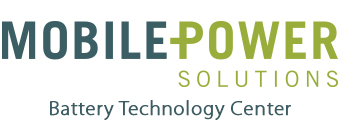Regulatory Testing
Mobile Power Solutions (MPS) specializes in guiding your company through today’s increasingly complex battery regulations. Regulations and standards for international markets grow more complex and interrelated with each passing year. MPS provides comprehensive regulatory compliance, as well as safety, environmental, and performance testing. Our state-of-the-art lab and experienced engineering team are fully equipped to perform cell and battery qualification to your company’s specific regulatory requirements.
The MPS team is educated and current on relevant standards and testing requirements. In fact, the senior staff at MPS sit on the regulatory bodies that define these standards. MPS provides regulatory approvals as part of our battery development process. Additionally, MPS offers regulatory qualification for third party cells and batteries. MPS is ANAB accredited to ISO/IEC 17025:2017, as well as certified to ISO 9001:2015 and AS 9100D.
UN 38.3 TESTING

UN 38.3 Approval is required for shipping all production-level Lithium cells and batteries.
The U.S. Department of Transportation regulates shipment of primary Lithium and secondary Lithium-ion cells and batteries. Lithium batteries are classified as a Class 9 Dangerous Good during transport, as they present the potential for fire hazard. UN 38.3 references the U.N. Manual of Tests and Criteria, Sub-section 38.3. UN 38.3 is a mandatory certification for Lithium-ion cell and battery shipments via land, air, rail, and sea. UN 38.3 applies to batteries transported either on their own or installed in a device. UN 38.3 Tests include altitude simulation, thermal cycling, vibration, mechanical shock, external short-circuit, impact, overcharge and forced discharge.
MPS can perform UN 38.3 pre-testing within our development process at the prototype phase, and can perform formal UN 38.3 testing at the pre-production launch phase. MPS has the staff, test facilities, and the accreditation to perform UN 38.3 approvals in-house.
For more information on our UN 38.3 test services and test facilities, click here:
For a detailed specification of UN 38.3, click here:
RTCA DO-227 and DO-311 Testing

Lithium batteries power many subsystems on modern aircraft.
The Federal Aviation Administration (FAA) requires certification to DO-227 for primary Lithium cells and batteries, and DO-311 for secondary Lithium-ion cells and batteries installed on aircraft. DO-227 is the Minimum Operational Performance Standards (MOPS) for Non-Rechargeable Lithium Batteries. DO-311 is the Minimum Operational Performance Standard (MOPS) for Rechargeable Lithium Batteries and Battery Systems. Compliance with RTCA DO-227 or DO-311 ensures cells and batteries perform their intended function safely in conditions encountered in aeronautical environments. Unlike UN 38.3 certification (which qualifies batteries for shipment on aircraft), RTCA DO-227 or DO-311 provides design, testing, and installation guidance for primary Lithium and secondary Lithium-ion batteries that are permanently installed on aircraft. These types of batteries typically power guidance, communication, navigation, lighting, and emergency beacon subsystems. MPS serves on the committee drafting the replacement to DO-311.
MPS can perform RTCA DO-227 or DO-311 pre-testing within our development process at the prototype phase, and can perform formal RTCA DO-227 or DO-311 testing at the pre-production launch phase. Testing is witnessed by an FAA Designated Engineering Representative. MPS has the staff, test facilities, and the accreditation to perform RTCA DO-227 and DO-311 approvals in-house.
For more information on our RTCA DO-227 and DO-311 test services and test facilities, click here:
For a summary specification of RTCA DO-227, click here:
For a summary specification of RTCA DO-311, click here:
TSO-C142 Testing
Similar to RTCA DO-227, Technical Standard Order (TSO) C142 (Revision B) prescribes the minimum performance standard that primary lithium cells and batteries must meet to be identified with the applicable TSO marking. This TSO applies to Lithium cells and batteries intended to provide power for aircraft equipment including emergency and standby systems.
MPS can perform TSO-C142 pre-testing within our development process at the prototype phase, and can perform formal TSO-C142 testing at the pre-production launch phase.
For more information on our TSO-C142 test services and test facilities, click here:
For a summary specification of TSO-C142, click here:
IEC 62133 Testing
IEC 62133 is the international Standard for Portable Sealed Secondary Cells, and for Batteries made from these Cells for use in Portable Applications. IEC 62133 specifies requirements and tests for the safe operation of portable sealed secondary Lithium-ion cells and batteries containing non-acid electrolyte, under their intended use and reasonable misuse conditions. IEC 62133 addresses various aspects of battery safety, including mechanical, electrical, and chemical safety. IEC 62133 applies to batteries that are used in consumer, industrial, commercial, medical, and military products.
As part of a battery development project, MPS can provide IEC 62133 pre-testing at the prototype phase and facilitate formal IEC 62133 testing at the pre-production launch phase.
For more information on our IEC 62133 test services and test facilities, click here:
For a summary specification of IEC 62133, click here:
UL 2054

Most mobile medical devices have UL 2054 approvals for their Lithium batteries.
UL 2054 is the Standard for Household and Commercial Batteries. UL 2054 addresses portable primary and secondary batteries for use as power sources in household and commercial products. These batteries can consist of either a single cell or multi-cell batteries. UL 2054 intends to reduce the risk of injury to persons due to fire or explosion when batteries are used in a product, as well as reduce risk of injury when batteries are removed from a product for transportation, storage, and disposal.
The U.S. Food and Drug Administration (FDA) recognizes UL 2054 standard as a consensus standard for medical devices incorporating Lithium-based batteries. Additionally, the U.S. Occupational Safety Health Administration (OSHA) has added UL 2054 to its Nationally Recognized Testing Program list of appropriate test standards.
As part of a battery development project, MPS can provide UL 2054 pre-testing at the prototype phase and facilitate formal UL 2054 testing at the pre-production launch phase.
For more information on our UL 2054 test services, click here:
For a summary specification of UL 2054, click here;


